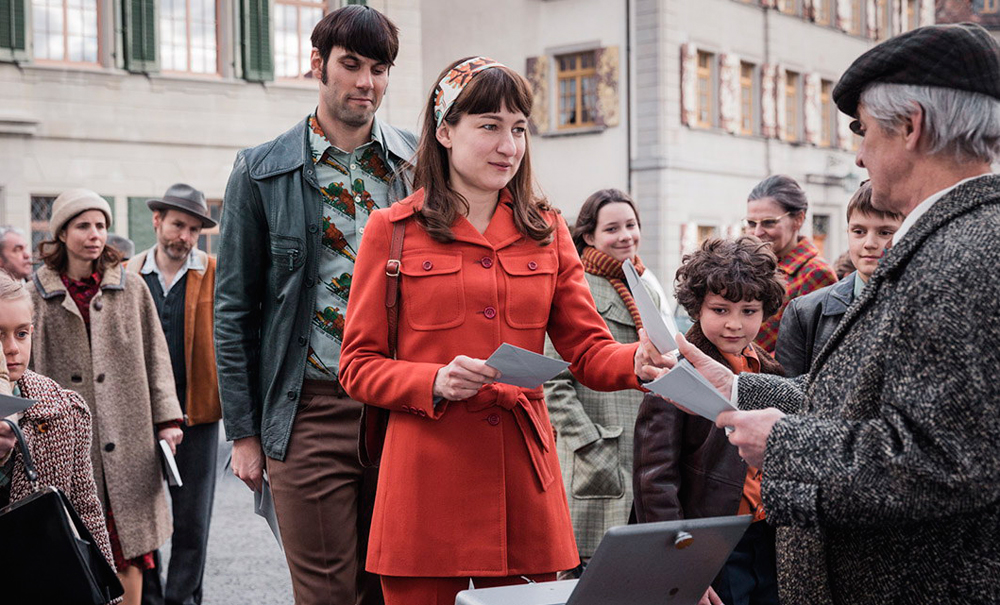At a time when women’s rights feel as if they’re regressing internationally, Petra Volpe’s “The Divine Order,” arrives as an unexpectedly revolutionary and propulsive drama despite its setting in 1971 Switzerland, where remarkably women weren’t allowed the right to vote. Known for their neutrality in foreign affairs, the country was full of far stronger feelings about a woman’s place in society, with even tradition-bound women encouraging their peers that they belonged at home, taking care of the children.
While activist efforts took hold in major cities such as Zurich and Geneva, “The Divine Order” is wise to seek out discontent in the countryside where Nora (Marie Leuenberger), the wife of Hans (Maximilian Simonischek), a factory department head, is frustrated in her attempt to seek work outside the home, tired of catering to a cantankerous father-in-law and a routine of menial tasks. Her resolve is bolstered by the treatment of her niece Hanna (Ella Rumpf), who is consigned by her parents to a women’s prison after being caught seeing a boy they don’t approve of, and being forbidden by her own husband to pursue work, which he is entitled to legally. In spite of Hans’ stance, it isn’t long before Lesley Gore’s “You Don’t Own Me” is scoring Nora’s way out of town to collect brochures and Betty Friedan books. Upon her return, Nora’s refusal to contribute the Anti-Politicization of Women Committee’s cause of keeping the vote exclusively a man’s right turns heads in the village, including some in approval, namely Vroni (Sibylle Brunner), one of the community elders, and Graziella (Marta Zoffoli), a divorcee new in town who just opened a cafe.
Though “The Divine Order” actually began life as a dissertation paper Volpe wrote in college about the Anti-Politicization of Women Committee, the film is anything but dry, with Leuenberger setting the seriocomic tone of the film perfectly as Nora with droll eye-rolls and quiet persistence. A trip to the city that takes a turn into a sexual empowerment workshop with women deciding which fierce animal their labias resemble will either be your favorite or least so, making you cringe either way. But as eager as the film is to be a crowdpleaser with big moments of humor and political triumph, it is careful to earn every one of them as others in the community come around to Nora’s way of thinking, with Volpe as confident as her lead character in her end goal.
Vivid period details enliven “The Divine Order,” but the film unmistakably has a contemporary drive. Even without the timeliness of hitting theaters on the heels of the Women’s March in January, Judith Kaufmann’s sleek cinematography and Annette Focks’ mischievous but largely dignified score beautifully accentuate the urgency of the film, which leaves no loose ends despite its allusions to a far bigger and sprawling history. In concentrating on the idiosyncrasies of a small village, Volpe finds a wily way in to a story that reaches across geographic borders as well as ones formed by gender, busting them both down in a rallying cry for equality that exudes a filmmaker’s distinctive individual voice.
“The Divine Order” does not yet have U.S. distribution.




